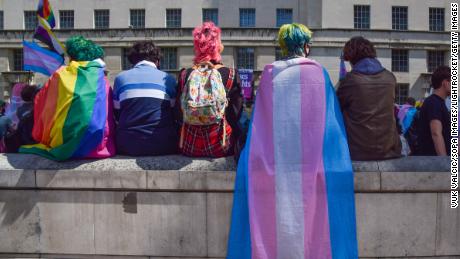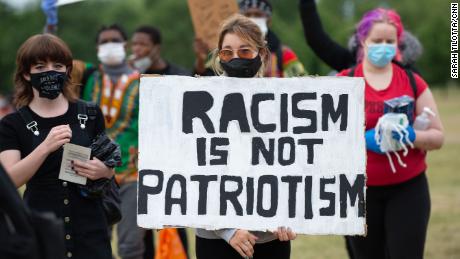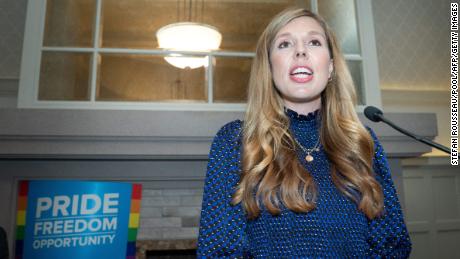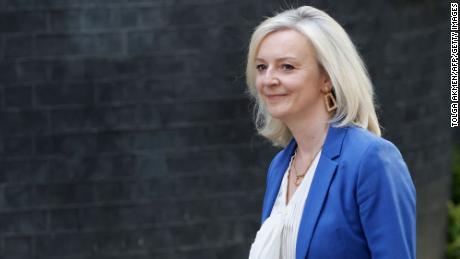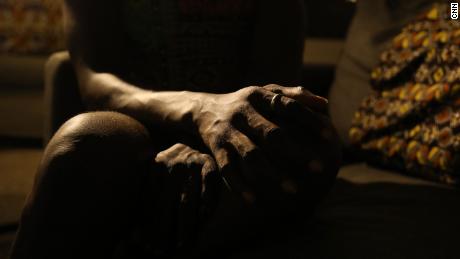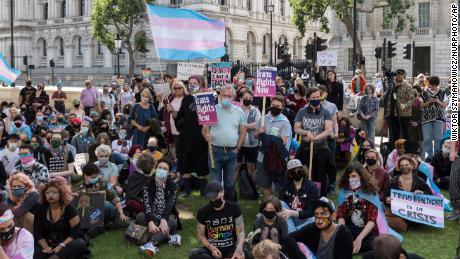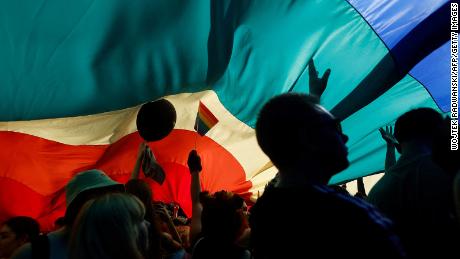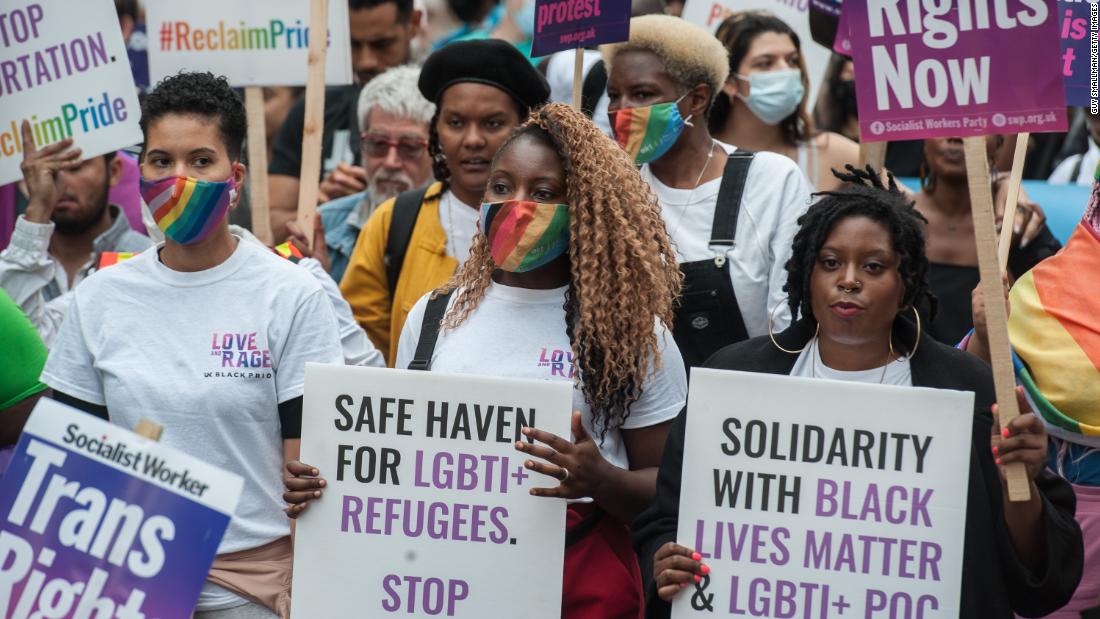
Both Davey and Starmer said respectful debates were needed on the matters. Johnson avoided answering the question directly, saying “biology is very important but we’ve got a system now in our country for many, many years where people can change gender … and what I absolutely passionately believe … is everybody should be treated with dignity and respect.”
But none of these facts were conveyed in those short interviews, and instead complex questions and answers around trans rights have been boiled down to soundbites. “The media shamefully advances this transphobic frontier, with both the right-wing press and ostensibly leftist outlets” working to demonize trans people, Lisa Tilley, a political economist based at the University of London’s School of Oriental and African Studies, told CNN.
“Politicians are often either unprepared to reject the terms of this debate or they are actively advancing a transphobic political project themselves. Whatever the intentions of this harmful and exclusionary political project, the effects are to make the UK one of the most transphobic countries in the world,” she opined.
When it comes to trans rights “polling shows that the public isn’t necessarily as hostile as the media, but the media [continues] to lead the conversation,” Shon Faye, trans advocate and author of “The Transgender Issue,” told CNN. According to her analysis, in 2020 the Times and the Sunday Times published “over 300 articles, almost one a day, and they were all negative.” CNN has reached out to both newspapers for comment.
The British media has created an environment where “male violence is also displaced from the real culprits onto vulnerable transgender people, who are demonized collectively as abusers, rather than more accurately represented as victims and survivors of abuse,” Tilley said.
Culture wars
This March, three members of the government’s LGBT Advisory Panel resigned. In his resignation letter, Scottish trans equalities campaigner James Morton said the government did not “have any desire to build a country in which trans people are among those free to live their lives.”
The final straw was the government’s “war on woke,” which disparaged the trans community, as well as the stalled ban on conversion therapy — following objections to it by religious organizations, gender-critical feminists and anti-trans groups, Morton told CNN. Similar to some US Republican Party lawmakers’ critiques of critical race theory, “war on woke” has turned into a catchall to describe what Conservatives don’t like: be it the perceived excesses of the left, conversations around racial equality, or social justice initiatives like trans rights.
Conservative lawmaker Crispin Blunt, who chairs the All-Party Parliamentary Group on Global LGBT+ Rights, last year called for Truss’s Women and Equalities brief be passed to someone else, saying she lacked “the time or necessary empathy to continue in this role.”
Speaking to CNN, he explained her other brief (which she held before a cabinet reshuffle in September) as “the most important trade minister in the history of the United Kingdom” meant she did not have bandwidth to see the gay conversion ban through.
When it comes to trans issues, “the Prime Minister quite rightly wants the temperature to be taken down on this debate, have a sensible, evidence-based conversation,” Blunt told CNN.
These sentiments were on display at a LGBT Conservatives event at the Conservative Party conference, where Johnson’s wife, Carrie, shared a stage with pro-trans voices in the party. There she said her husband was committed to protecting LGBTQ rights, and the government “is banning” conversion therapy.
While “there are perfectly reasonably concerns of what the implication of trans women might be for women’s rights, a lot of that anxiety is based on wildly exaggerated theoretical positions rather than practical ones,” Blunt told CNN. “While [trans people] have to cope with the practical reality that it is bloody tough being trans.”
Turn the dial
Despite those supportive words, the trans-critical dial in the media is up at full blast. It began in 2017 over former UK Prime Minister Theresa May’s plans to reform the process it takes for trans people to change their legal gender — in line with some other European countries. “A group of anti-trans campaigners came forward, saying they were concerned such reforms would lead to cis-men entering women’s spaces,” Jane Fae, chair of Trans Media Watch, told CNN of hypothetical concerns that have yet to materialize in countries that have these rights in place.
The debate around reforming the law led to a surge of intolerant media coverage. “In the four years since I cannot think of a single aspect of trans life — from sport to ability to live in public, to access to medical treatment — that has not come under scrutiny and attack from these people,” she said.
Better political leadership is needed to counter the media narrative that trans people, particularly trans women, are taking resources away from cisgender women, Faye said. A leader who is willing to tackle the more complex parts of the trans debate, such as the issues surrounding access to gender-based violence services, by promising better resourcing and funds to counter the Conservative Party’s austerity cuts on women’s refuges, she added.
War of words
The pitched battle between trans advocates and gender-critical feminists is taking place in an environment where language is changing to accommodate diverse identities, and one with which politicians and British journalists appear to struggle to keep up.
These constructions are instead blamed by trans-critical commentators on trans people and the culture war, when perhaps there should be a better discussion about language choices, Faye said. “Is it dehumanizing? Does it express the point? Does it include everyone? Is there a more tidy way to phrase it?”
Like clockwork, The Lancet’s choice of words turned into another media talking point on trans people’s rights.
During the Labour conference in the southern English coastal city of Brighton last week, BBC’s Nick Robinson pushed Labour lawmaker David Lammy on his position on trans rights. Robinson asserted that an internal party analysis found that Labour lost working-class voters in northern England because the voters “feel they have little in common with the young quinoa-eating graduate city-dwelling socially liberal Remainers and Labour voters who they believe do not put Britain first and judge people like them harshly and unfairly for their views.”
“Nick, you could be asking me about climate change. You could be asking me about mental health. You could be asking me about education. You could be asking me about health. You deliberately are asking me about an issue that you know does not come up on the doorstep,” Lammy replied.
“[You] are choosing to land on this subject that most British people are not talking about in a fuel crisis,” Lammy added. “And spend minutes on this, because it keeps Labour talking about identity issues and not about the substantive policies.”
